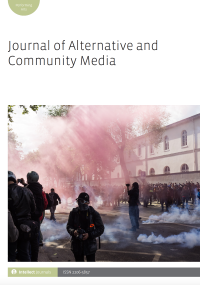-
oa Community radio contradictions in Canada: Learning from volunteers impacted by commercialising policies and practices
- Source: Journal of Alternative & Community Media, Volume 4, Issue 4, Dec 2019, p. 20 - 36
-
- 01 Dec 2019
Abstract
Community radio has been defined by the United Nations Educational, Scientific and Cultural Organization (UNESCO) as promoting non-profit ownership of stations and volunteer participation. The increasing commercialisation of community radio in Canada, evident in changing station practices and regulatory policies, has resulted in the erosion of volunteer run governance and programming. This article draws on community media, anti-oppression, and third-sector studies literature to investigate the experiences of volunteers from two stations, CHRY in Toronto and Radio Centre-Ville in Montréal. Current Canadian Radio-television and Telecommunications Commission (CRTC) regulations define community radio ‘by virtue of its place in the communities served.’ This article concludes that reducing the engagement and empowerment of volunteers in community radio programming and governance limits the place of community radio in the community. The authors will also identify best practices that are needed to re-centre community radio within the community while ensuring a sustainable non-profit community broadcasting sector.


